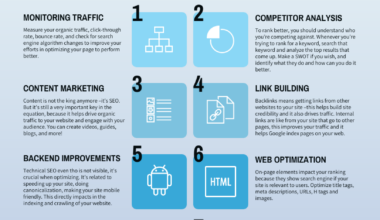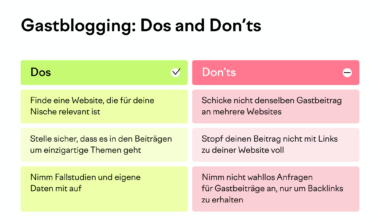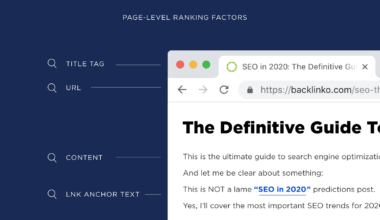Introduction: Understanding Social Signals and SEO
As a website owner or digital marketer, you may have heard the term “social signals” being thrown around in the context of SEO. But what exactly are social signals, and how do they impact your website’s search engine ranking?
Social signals refer to the likes, shares, comments, and other forms of engagement that your website’s content receives on social media platforms like Facebook, Twitter, and Instagram. These actions provide search engines like Google with an indication of the popularity and relevance of your content.
In recent years, social signals have become an increasingly important factor in SEO ranking. This is because search engines are constantly looking for ways to improve the relevance and quality of their search results. By factoring in social signals, they can get a better understanding of how users perceive and engage with your content.
However, it’s important to note that social signals alone are not enough to boost your search engine ranking. They are just one of many factors that search engines consider when determining the relevance and quality of a website’s content. Other factors include backlinks, website structure, and keyword optimization.
In this article, we’ll explore the role of social signals in SEO and provide you with tips on how to leverage them to improve your website’s search engine ranking. By the end of this article, you’ll have a better understanding of how social signals work and how to incorporate them into your SEO strategy.
The Importance of Social Signals in SEO Ranking
Social signals play a crucial role in determining the search engine ranking of a website. They provide search engines with valuable insights into the popularity and relevance of a website’s content. Here are some reasons why social signals are important for SEO ranking:
1. Increased visibility: Social signals can help increase the visibility of your website’s content on social media platforms. When users engage with your content by liking, sharing, or commenting, it can be seen by their friends and followers, leading to increased visibility and potential traffic to your website.
2. Improved trust and credibility: Social signals can also help improve the trust and credibility of your website. When your content receives high engagement on social media, it signals to search engines that your content is valuable and relevant to users, leading to improved search engine ranking.
3. Better user engagement: Social signals can also lead to better user engagement on your website. When users see that your content is popular and relevant, they are more likely to engage with it by reading, sharing, or commenting, leading to increased time spent on your website and improved search engine ranking.
To leverage social signals for SEO ranking, it’s important to focus on creating high-quality content that is shareable and relevant to your target audience. Here are some tips to help you get started:
1. Optimize your content for social media sharing: Make sure your website’s content is optimized for social media sharing by including social media buttons and meta tags that make it easy for users to share your content.
2. Engage with your audience on social media: Engage with your audience on social media by responding to comments and messages, and sharing relevant content from other sources.
3. Build a strong social media presence: Build a strong social media presence by consistently posting high-quality content and engaging with your audience on social media platforms.
By incorporating social signals into your SEO strategy, you can improve the visibility, trust, and credibility of your website, leading to increased traffic and improved search engine ranking.
How Social Signals Affect Search Engine Indexing
Social signals can have a significant impact on how search engines index your website’s content. Here are some ways that social signals can affect search engine indexing:
1. Faster indexing: When your website’s content receives social signals, search engines like Google are more likely to index it faster. This is because social signals are a sign of relevance and popularity, which are important factors in determining search engine ranking.
2. Improved crawl rate: Social signals can also lead to an improved crawl rate of your website. When search engines see that your content is receiving high engagement on social media, they are more likely to crawl your website more frequently, leading to improved search engine ranking.
3. Increased keyword relevance: Social signals can also increase the relevance of keywords on your website. When users engage with your content on social media, they are likely to use keywords related to your content, leading to improved search engine ranking for those keywords.
To leverage social signals for search engine indexing, it’s important to focus on creating shareable content that is relevant to your target audience. Here are some tips to help you get started:
1. Use social media to promote your content: Use social media platforms like Facebook, Twitter, and LinkedIn to promote your website’s content and encourage social signals.
2. Create shareable content: Focus on creating content that is shareable and relevant to your target audience. This can include blog posts, infographics, videos, and other forms of content that are likely to be shared on social media.
3. Encourage social sharing: Make it easy for users to share your content on social media by including social media buttons and calls to action in your content.
By leveraging social signals for search engine indexing, you can improve the crawl rate, relevance, and visibility of your website’s content, leading to improved search engine ranking and increased traffic to your website.
The Impact of Social Shares on SEO Traffic
Social shares can have a significant impact on the amount of traffic that your website receives from search engines. Here are some ways that social shares can impact SEO traffic:
1. Increased referral traffic: When users share your website’s content on social media, it can lead to increased referral traffic to your website. This is because users who see your content on social media may click on the link and visit your website, leading to increased traffic and potential conversions.
2. Improved click-through rate: Social shares can also lead to an improved click-through rate (CTR) for your website’s content. When users see that your content has been shared by others, it can increase their interest and curiosity, leading to a higher CTR and improved search engine ranking.
3. Higher engagement: Social shares can also lead to higher engagement on your website. When users visit your website from social media, they are more likely to engage with your content by reading, sharing, or commenting, leading to increased time spent on your website and improved search engine ranking.
To leverage social shares for SEO traffic, it’s important to focus on creating high-quality content that is shareable and relevant to your target audience. Here are some tips to help you get started:
1. Use social media to promote your content: Use social media platforms like Facebook, Twitter, and LinkedIn to promote your website’s content and encourage social shares.
2. Create shareable content: Focus on creating content that is shareable and relevant to your target audience. This can include blog posts, infographics, videos, and other forms of content that are likely to be shared on social media.
3. Encourage social sharing: Make it easy for users to share your content on social media by including social media buttons and calls to action in your content.
By leveraging social shares for SEO traffic, you can increase referral traffic, improve CTR, and boost engagement on your website, leading to improved search engine ranking and potential conversions.
In conclusion, social signals play a crucial role in SEO ranking, search engine indexing, and SEO traffic. By incorporating social signals into your SEO strategy, you can improve the visibility, trust, and credibility of your website, leading to increased traffic and potential conversions. It’s important to focus on creating high-quality content that is shareable and relevant to your target audience, and to engage with your audience on social media to encourage social signals. By following these tips, you can leverage social signals to improve your website’s search engine ranking and drive more traffic to your website.
Leveraging Social Signals for High-Quality Backlinks
Social signals can also be leveraged to obtain high-quality backlinks, which are crucial for improving search engine ranking. Backlinks refer to links from other websites that lead back to your website. Here are some ways to leverage social signals for high-quality backlinks:
1. Share your content on social media: Sharing your website’s content on social media platforms can increase its visibility and reach. This can lead to other websites linking back to your content, providing high-quality backlinks and improving search engine ranking.
2. Engage with other websites on social media: Engaging with other websites on social media platforms can help establish relationships and increase the chances of obtaining backlinks. By sharing their content, commenting on their posts, and engaging with their audience, you can establish a rapport and potentially receive backlinks.
3. Use social media to promote guest posts: Guest posts are an effective way to obtain backlinks from other websites. By using social media to promote your guest posts, you can increase their visibility and increase the chances of receiving high-quality backlinks.
To leverage social signals for high-quality backlinks, it’s important to focus on creating high-quality content that is shareable and relevant to your target audience. Here are some tips to help you get started:
1. Create shareable content: Focus on creating content that is shareable and relevant to your target audience. This can include blog posts, infographics, videos, and other forms of content that are likely to be shared on social media.
2. Engage with other websites: Engage with other websites on social media by sharing their content, commenting on their posts, and engaging with their audience.
3. Promote guest posts: Use social media to promote your guest posts and increase their visibility.
By leveraging social signals for high-quality backlinks, you can improve search engine ranking, increase website traffic, and establish relationships with other websites in your niche. It’s important to focus on creating high-quality content and engaging with other websites on social media to increase the chances of obtaining backlinks and improving search engine ranking.
Final Thought: Integrating Social Signals into Your SEO Strategy
Integrating social signals into your SEO strategy can help improve the visibility, relevance, and credibility of your website. By leveraging social media platforms to promote your content and engage with your audience, you can encourage social signals like likes, shares, and comments, leading to improved search engine ranking.
To integrate social signals into your SEO strategy, here are some tips to help you get started:
1. Focus on creating high-quality, shareable content that is relevant to your target audience.
2. Use social media platforms like Facebook, Twitter, and LinkedIn to promote your content and encourage social signals.
3. Engage with your audience on social media by responding to comments and messages, and sharing relevant content from other sources.
4. Use social media to promote guest posts and increase their visibility.
5. Participate in online communities and forums related to your niche to establish relationships and potentially receive backlinks.
By incorporating these tips into your SEO strategy, you can leverage social signals to improve search engine ranking, increase website traffic, and establish relationships with other websites in your niche.
It’s important to note that social signals alone are not enough to boost your search engine ranking. They are just one of many factors that search engines consider when determining the relevance and quality of a website’s content. It’s important to focus on creating high-quality content, optimizing your website’s structure, and building quality backlinks to improve search engine ranking.
In conclusion, social signals play an important role in SEO ranking, search engine indexing, and SEO traffic. By incorporating social signals into your SEO strategy, you can improve the visibility, relevance, and credibility of your website, leading to increased traffic and potential conversions. Remember to focus on creating high-quality content, engaging with your audience on social media, and building quality backlinks to achieve the best results.






















